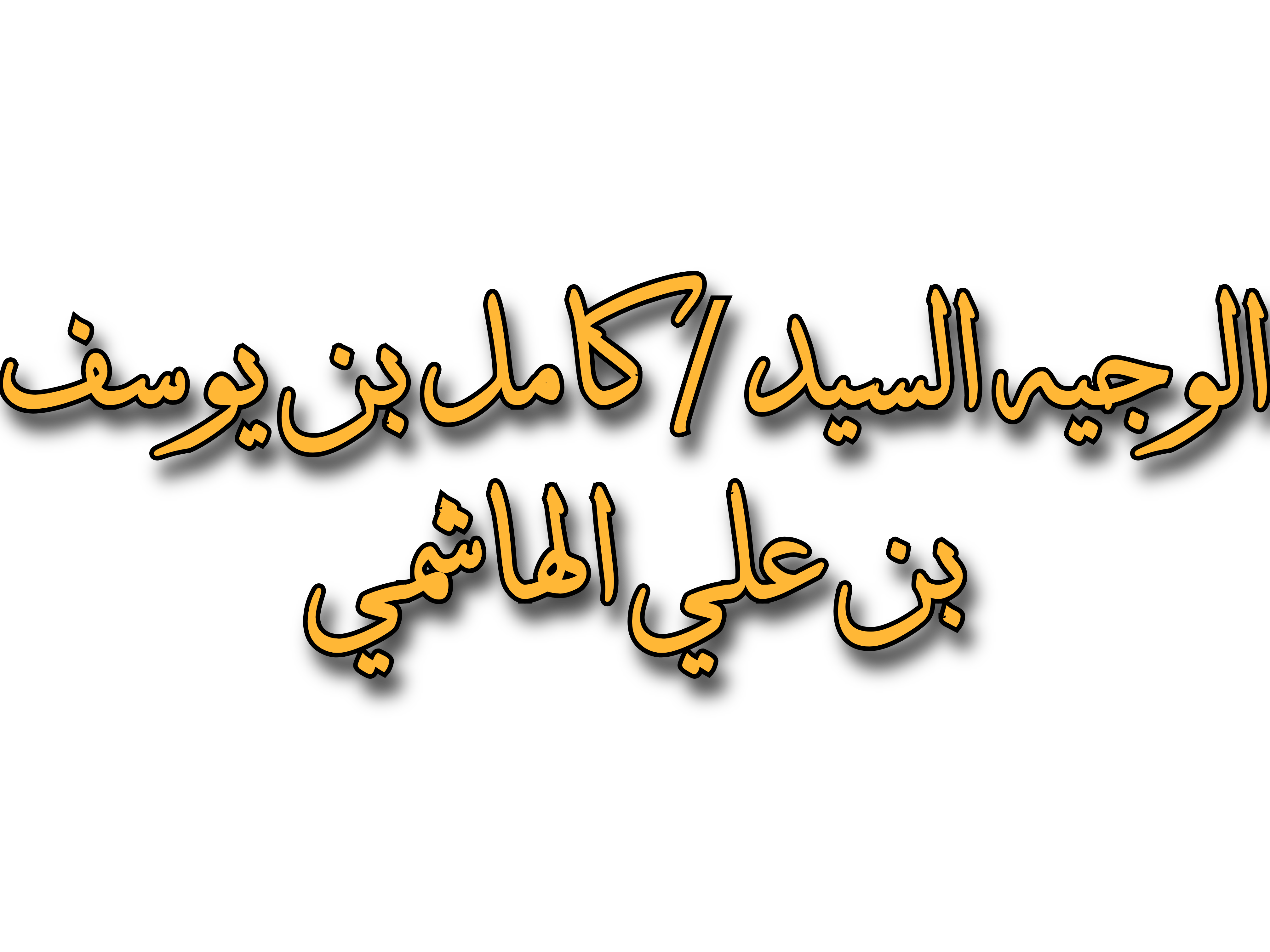The Honorable
Sayed / Kamil bin Yousuf bin Ali AL Hashmi
A righteous and devout man, known for his piety and modesty. He was one of the prominent figures in Islamic sciences and a trusted religious reference for Muslims around the world in matters of fatwa and knowledge. He followed the path of the righteous predecessors, firmly holding on to the truth and the teachings of the Prophet Mohammad (peace be upon him)
Sayed Kamil bin Yousuf bin Ali Al-Hashmi came from a noble family belonging to the Banu Hashim tribe—people known for their knowledge, trade, generosity, and good character
He was born in 1941 and raised in a religious and conservative environment, surrounded by the spirit of knowledge, guidance, and righteousness—far from worldly distractions and temptations
His father worked in trade across several Gulf countries, including Qatar, Bahrain, Kuwait, Dubai, and Abu Dhabi
This contributed to his upbringing in a setting that combined deep religious commitment with exposure to diverse communities
Undoubtedly, the Holy Qur’an—by the grace and blessing of Allah—was the light that guided his life and the foundation of his success and righteousness. As was the way of the righteous scholars before him (may Allah have mercy on them), he began his journey with the Qur’an: memorizing it, deeply reflecting on its meanings, and understanding its rulings and interpretation. From there, he progressed into other Islamic sciences
His Birth and Early Life
His Passing
He passed away on Wednesday, 18th Rabi’ al-Thani 1432 AH, corresponding to March 23, 2011, at the age of 70
The funeral prayer was held at the cemetery mosque in Meseimeer (Abu Hamour), where he was also laid to rest
The cemetery was filled with people who came to bid him farewell—indeed, people are Allah’s witnesses on His earth
We ask Allah to shower him with His vast mercy and forgiveness, and to grant him a place in His spacious Paradise
His Eloquence
The Arabic language—with all its beauty and expressive richness—is the language of the Qur’an and the Sunnah, and the most essential tool for understanding the faith and uncovering its deep meanings
The Sheikh — may Allah have mercy on him — was known for his eloquence and mastery of the Arabic language, particularly in the field of grammar. He had a clear and precise way of expressing himself, whether in writing, speeches, or lectures
He stood out for his powerful and touching style, his emotional tone that resonated with hearts, and his exceptional command of language. He followed the path of “simple yet profound” expression—an approach many scholars adopted to blend clarity with depth. His words left a lasting impact, as he was able to convey meaning accurately and concisely, without exaggeration or complexity
One of the most remarkable aspects of his speeches was his ability to organize thoughts clearly, so the listene never felt lost in scattered details. He also maintained emotional balance, allowing reason and logic to lead his message. His language was always free from grammatical mistakes, and his sincerity and natural delivery made his speech authentic and heartfelt—far from artificiality or pretense
The Sheikh — may Allah have mercy on him — was known for a remarkable presence that reflected the dignity and honor of true scholars. This was something acknowledged by prominent scholars and students of knowledge alike. Allah placed love and respect for him in people’s hearts—not out of fear or intimidation, but from deep admiration for his noble character and upright conduct.
His presence naturally commanded respect, and people held him in high regard out of modesty and reverence.
What added to his dignified character was his avoidance o anything inappropriate or offensive. He was never known to speak lightly or engage in excessive joking. His gatherings were filled with remembrance of Allah and reflection on the Hereafter.
Despite his high status, he was a model of humility, kindness in companionship, strong ambition, and sincerity in purpose. He carried himself with quiet confidence and self-respect, never showing off or acting pretentiously—almost as if he lived by the words of Allah: And I am not one of those who pretend

Sharp Memory and Quick Wit
The Sheikh — may Allah have mercy on him — was blessed with a strong memory, quick thinking, and an exceptional ability to recall religious matters with accuracy and deep understanding
He combined vast knowledge with sharp perception, making him one of those rare individuals known for their intelligence and keen insight
Allah granted him an extraordinary gift of memorization, which played a major role in his scholarly journey. His mind was filled with a vast collection of knowledge accumulated throughout his years of learning and teaching. He grasped religious issues with firm comprehension and insightful clarity
One clear example of this was how he would be asked about disputed hadiths in major collections of Sunnah, and he would respond immediately — quoting the hadith, identifying its source, commenting on its chain of narrators, and explaining scholarly opinions regarding it
He was also among those whom Allah blessed with memorizing Sahih al-Bukhari and Sahih Muslim, and he could recall their content with impressive precision, rarely missing any detail from their texts
His Insight and Discernment
Firasah (spiritual insight) is one of the noble qualities of scholars and righteous individuals. It is a gift from Allah granted to His sincere servants. Imam Ibn al-Qayyim — may Allah have mercy on him — described it as:
“A light that Allah casts into the heart of His servant, by which he distinguishes between truth and falsehood, sincerity and deception, reality and illusion”
This insight is in proportion to the strength of a person’s faith—the stronger the faith, the sharper and more accurate the firasah. Among the most renowned in this quality were Abu Bakr al-Siddiq and, after him, Umar ibn al-Khattab — may Allah be pleased with them both — whose firasah often aligned with divine revelation
The Sheikh’s firasah was not merely instinct or guesswork. Rather, it stemmed from his deep knowledge, sincere devotion, and constant mindfulness of Allah.
His strict adherence to the Sunnah and avoidance of personal desires granted him a piercing insight—rarely did he misjudge people or circumstances. His clarity of judgment was rooted in faith, not emotion
His Moral Traits and Personality
Everyone agreed that he was a true example of good manners, noble character, and high moral standards. He was humble, well-mannered, and deeply respectful—someone who led by example both in knowledge and action, guided by the Book of Allah and the Sunnah of His Prophet He was known for his piety, asceticism, honesty, trustworthiness, constant supplication, and deep reliance on Allah. He was generous, pleasant in his interactions, and devoted in his worship.
Here are some of the key moral qualities he was best known for:
Humility
Humility is a hallmark of the prophets and the righteous — a reflection of deep faith and sincere devotion to God. The late Sheikh embodied this noble trait with grace and dignity. Despite his vast knowledge and esteemed position, he remained grounded, never allowing pride to find its way into his heart
He treated everyone with kindness and compassion, whether rich or poor, young or old. He would sit with the common folk, listen attentively, and speak with gentleness and respect. He never looked down on others, nor did he let social status or worldly appearances affect how he interacted with people
The Sheikh lived by the spirit of the Qur’anic verse:
“And the servants of the Most Merciful are those who walk upon the earth humbly, and when the ignorant address them harshly, they say words of peace.” (Surah Al-Furqan: 63)
He also followed the prophetic guidance
“God has revealed to me that you should humble yourselves to one another, so that no one boasts over another, and no one oppresses another.” (Sahih Muslim)
His humility wasn’t just an outward act — it was a deep-rooted quality that made him loved, respected, and admired by all who knew him
Serenity and Dignity
Tranquility and dignity were two of the most striking qualities of Sheikh Sayed Kamil bin Yousuf Al-Hashmi — may Allah have mercy on himAnyone who came close to him or interacted with him would immediately sense these traits. His noble character and natural presence drew people to him, whether he was in the mosque, at home, or in his office. Wherever he was, people would naturally gather around him
Despite the large number of those who sought his company, the Sheikh gave each individual his full attention, listening intently as if that person alone had his care. He would never turn someone away until he had heard them out with patience, compassion, and sincerity. Whether they were students, those in need, or people seeking advice or help with personal matters, he welcomed everyone warmly and did his best to assist them however he could
Even in situations where others might become frustrated or feel wronged, the Sheikh would respond with calm and wisdom — encouraging patience, offering kind prayers, and gently guiding people toward understanding. This reflected his deep humility, inner peace, vast tolerance, and profound dignity
A reflection of the esteem in which he was held was the strong desire of people for his presence at marriage ceremonies. He would often arrive early, share in their joy, and request that someone recite verses from the Qur’an — which he would then explain to those present. This was a testament to his unwavering commitment to spreading knowledge, even in moments of celebration.
Sheikh Kamil bin Yousuf Al-Hashmi— may Allah rest his soul — was a shining example of noble Islamic character. He combined humility, serenity, dignity, generosity of spirit, and immense knowledge. He was beloved by the people, a model of virtue, scholarship, and righteous action
Known for his piety, integrity, and devotion to truth, he dedicated his life to calling others to Allah with wisdom and sincerity. His name became synonymous with wisdom and a proactive approach to doing good — making his life a timeless lesson for future generations on the importance of upholding moral values and community ethics. He was also known for his beautiful recitation of the Qur’an and his insightful interpretation of its verses, and he stood as a model of honesty and uprightness in addressing the concerns of the Muslim community
His educational phase
University Education
He earned a Bachelor’s degree in Shari’a from the Islamic University of Medina in 1975. He then obtained a Master’s degree in Dawah and Hisbah from Imam Mohammad ibn Saud Islamic University in Riyadh in 1983

Secondary Education
He completed his secondary education at the secondary institute of the Islamic University of Medina in 1971

Intermediate Education
He moved to Medina, Saudi Arabia, to continue his studies, where he completed his intermediate education at Dar al-Hadith School, affiliated with the Islamic University, in 1967. He achieved first place among the successful students

Primary Education
He began his primary education in the late 1950s in the State of Qatar
His Teachers
His Sons
Ahmad
Yousuf — may Allah
Mohammad
Abdulrahman
Ali
His Students
He played a significant role in educating numerous preachers and students in the State of Qatar and the Kingdom of Saudi Arabia. He was instrumental in shaping a generation of distinguished preachers, leaving a lasting impact on their knowledge and dedication to the mission of Dawah
His Profession
He played a prominent role over the past decades as one of the leading figures with a significant impact both locally and internationally. He served as a professor, researcher, preacher, jurist, and scholar in Islamic studies. In addition to his religious duties, he was well-known for his efforts in spreading Islamic knowledge and promoting Shari’a education
His Professional Field
1975
He was appointed as a teacher of Islamic Shari’a sciences
based on a decision from His Excellency Sheikh Jassim bin Mohammed Al Thani, the Minister of Education and Youth
He held several educational positions
Supervisor of Shari’a Sciences
Head of Shari’a Sciences Supervision, where he contributed to the development of Shari’a curriculum in Qatar
He worked as a supervisor for both Fiqh and Tafseer (Islamic jurisprudence and exegesis) subjects at the Religious Institute
He was appointed as the supervisor of Islamic Shari’a subjects, overseeing and monitoring 40 schools
1984 - 1987
he played a key role in the establishment of several religious schools and institutes
Practical training workshops for the carpentry section at the Industrial School
The Ideal Indian School
The Iranian School
Served as the President of the Islamic Studies University in Karachi – Qatar
1987
1990s
Worked as an educational supervisor for private schools in the 1990s, particularly those that do not use Arabic as a primary language
Took on the task of reviewing and verifying most of the religious books and publications entering Qatar for those schools
carefully examining their content to ensure alignment with Islamic teachings and educational values
Scientific Contributions
Scientific and Scholarly Contributions
1980
1983
Member of the Union of Muslims in Europe
He gave lessons and lectures in his home and weekly gatherings, and participated in addressing the concerns of Muslims in accordance with the Qur’an and the Sunnah
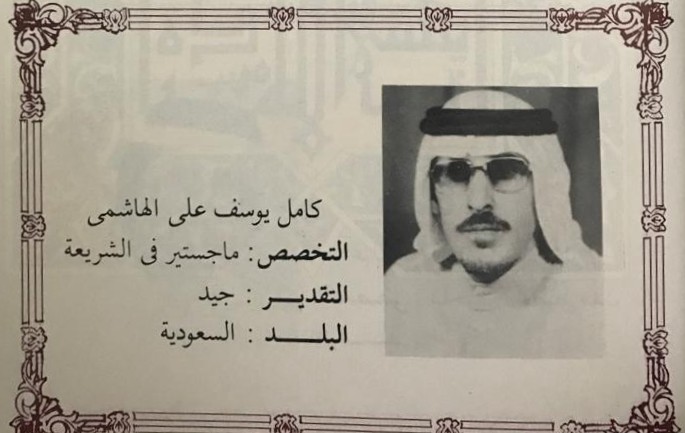
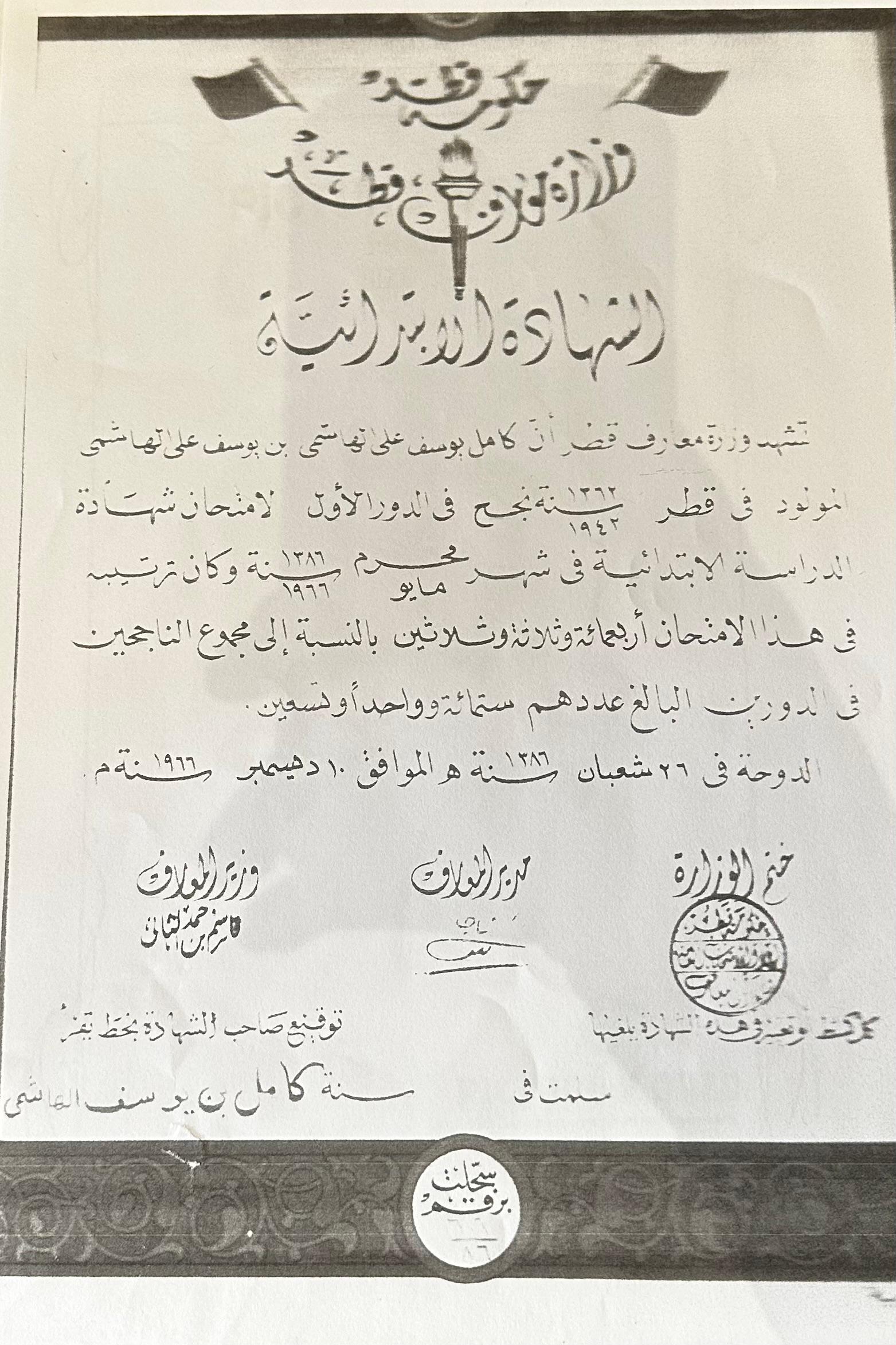
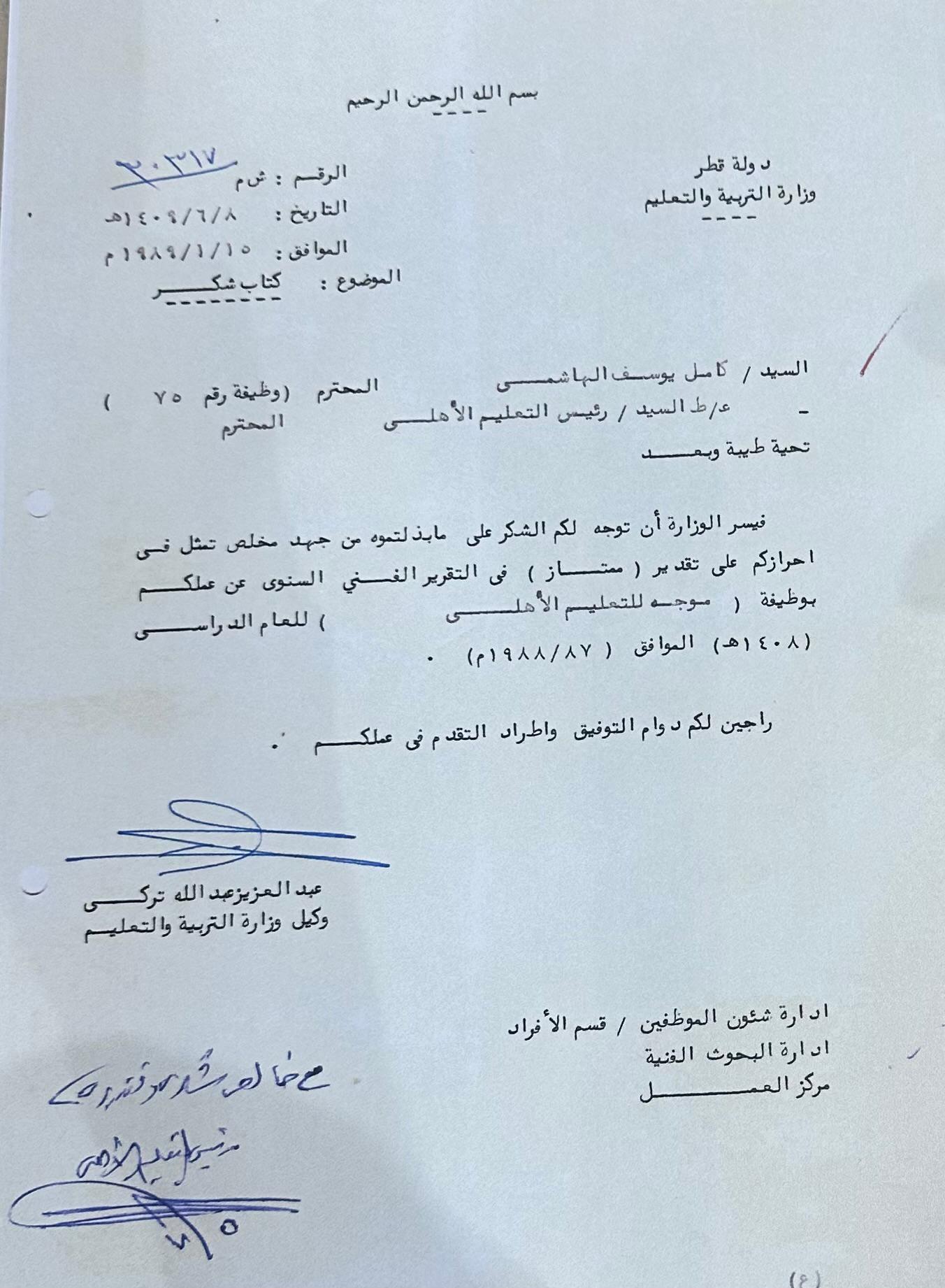
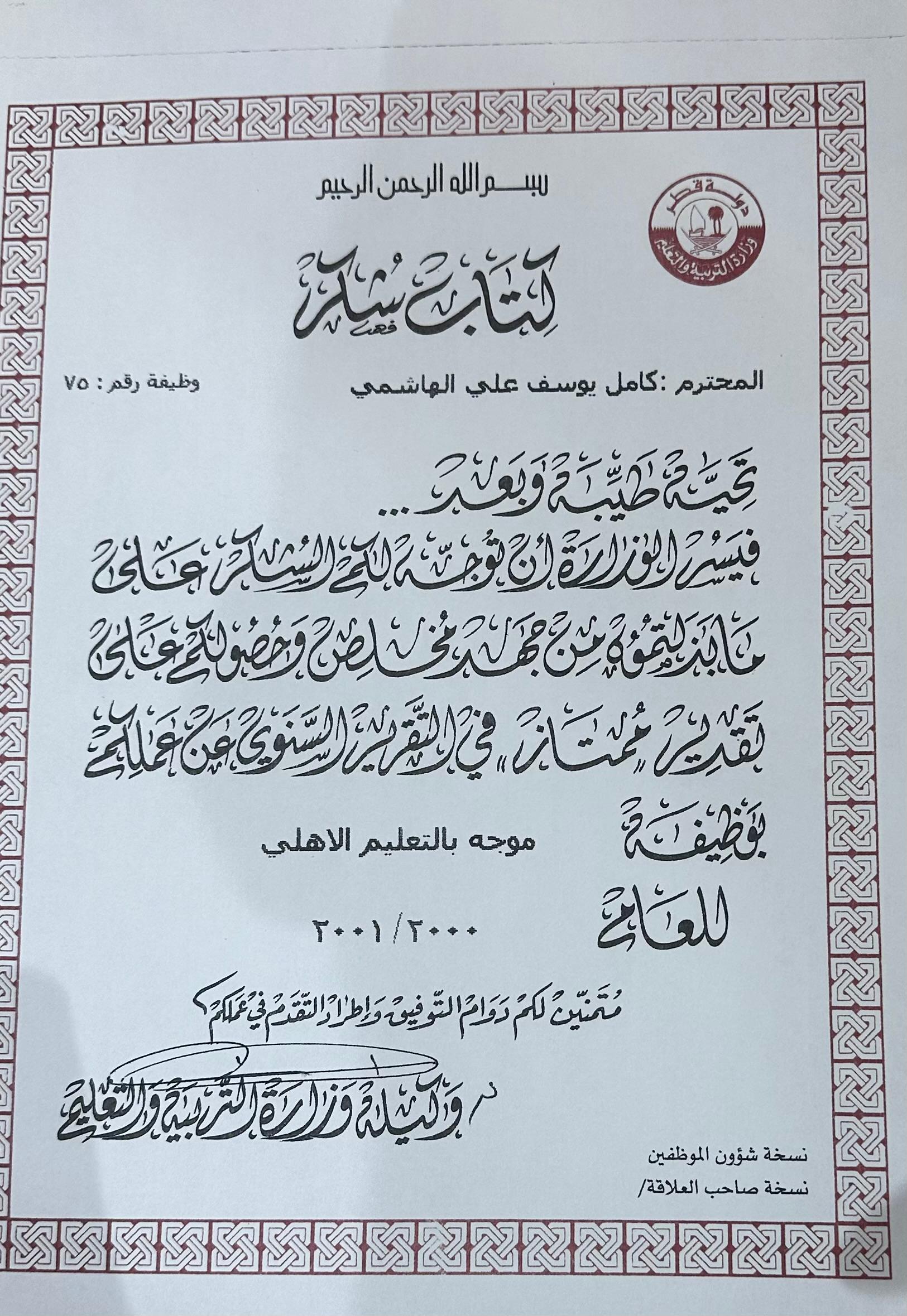
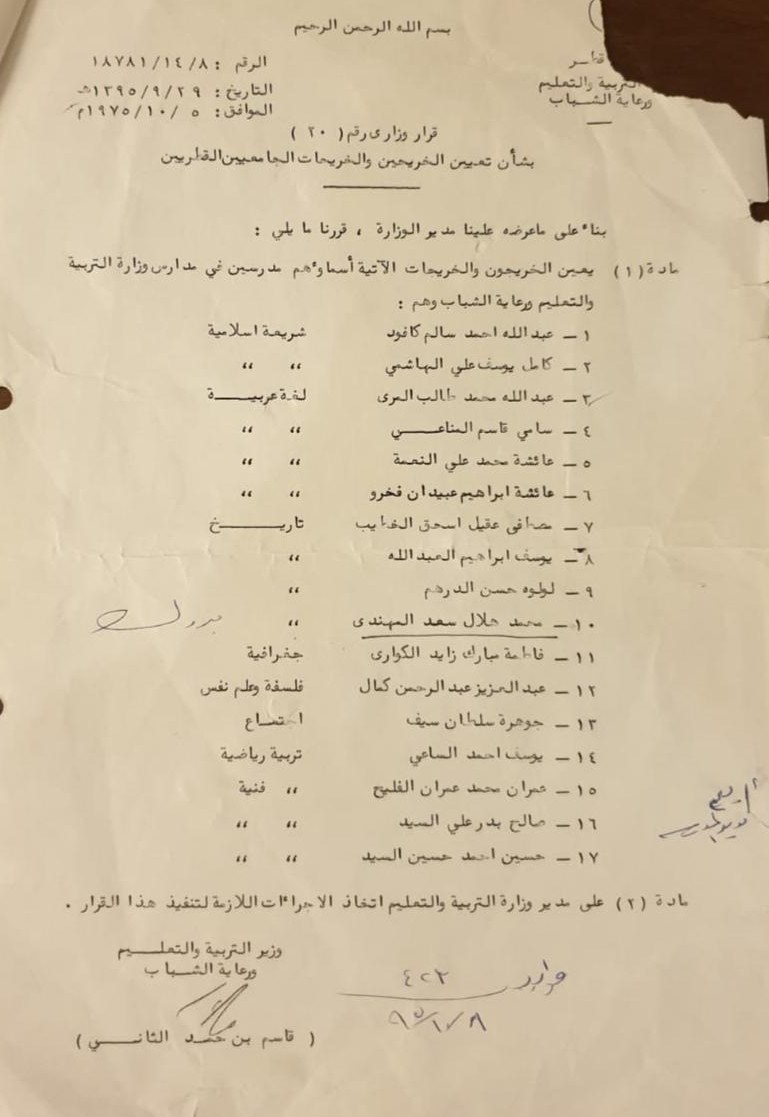
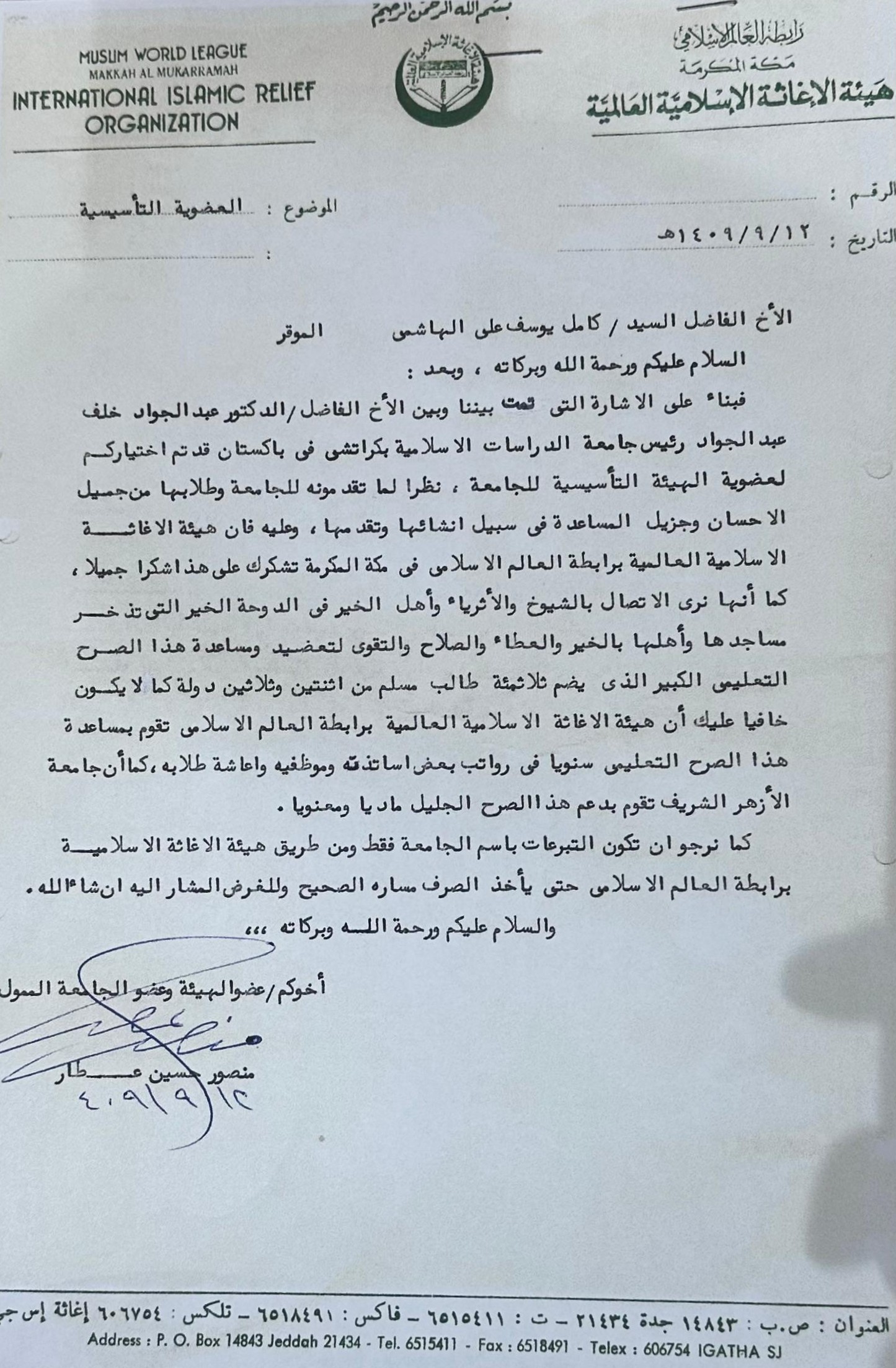
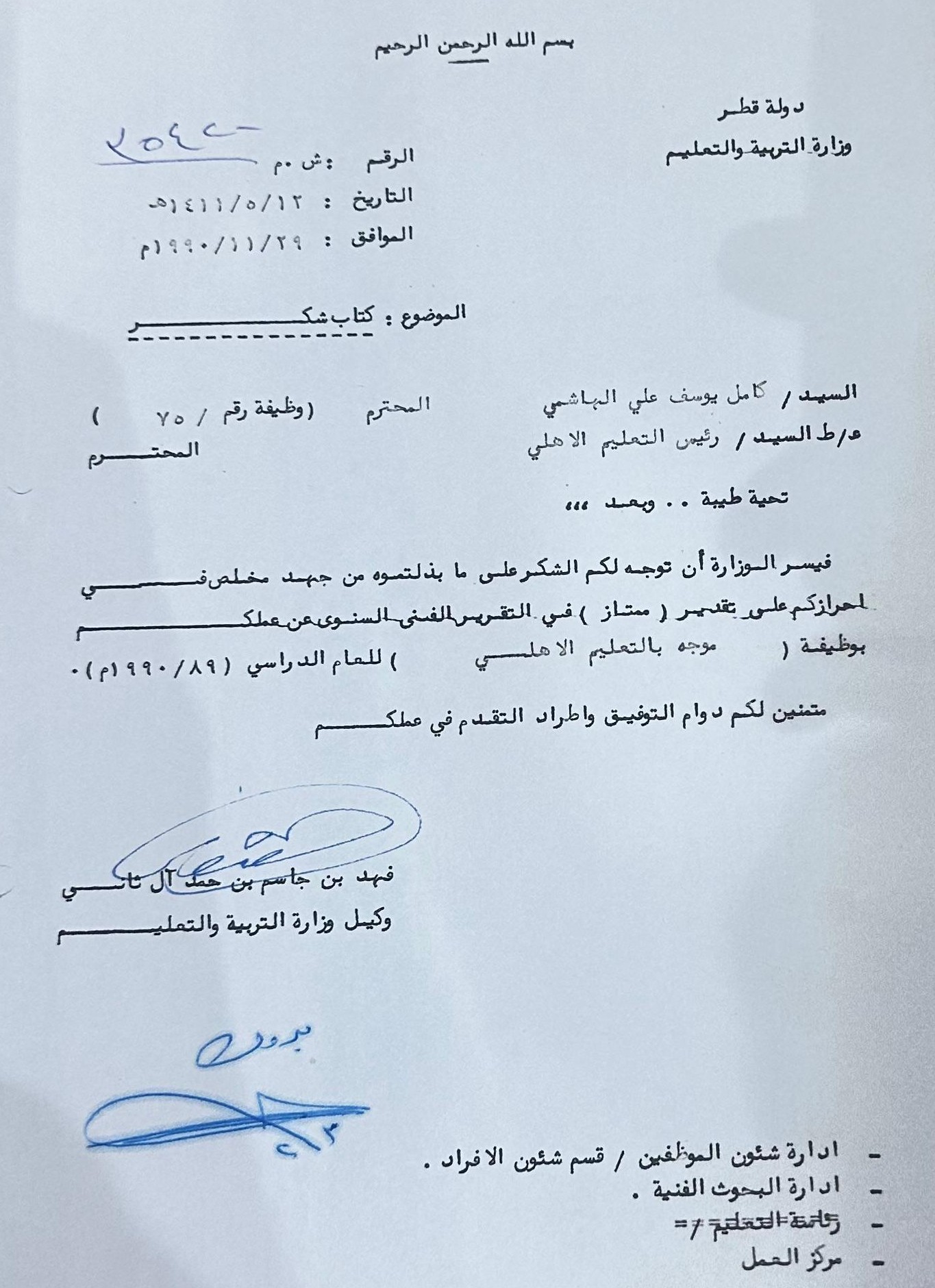
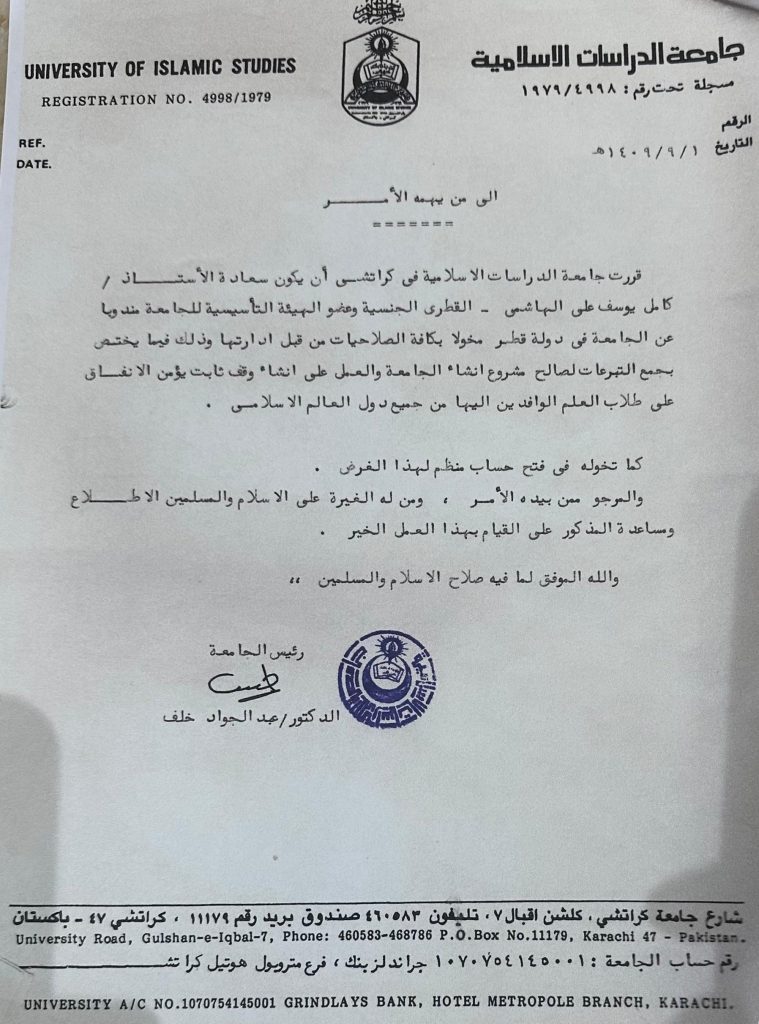
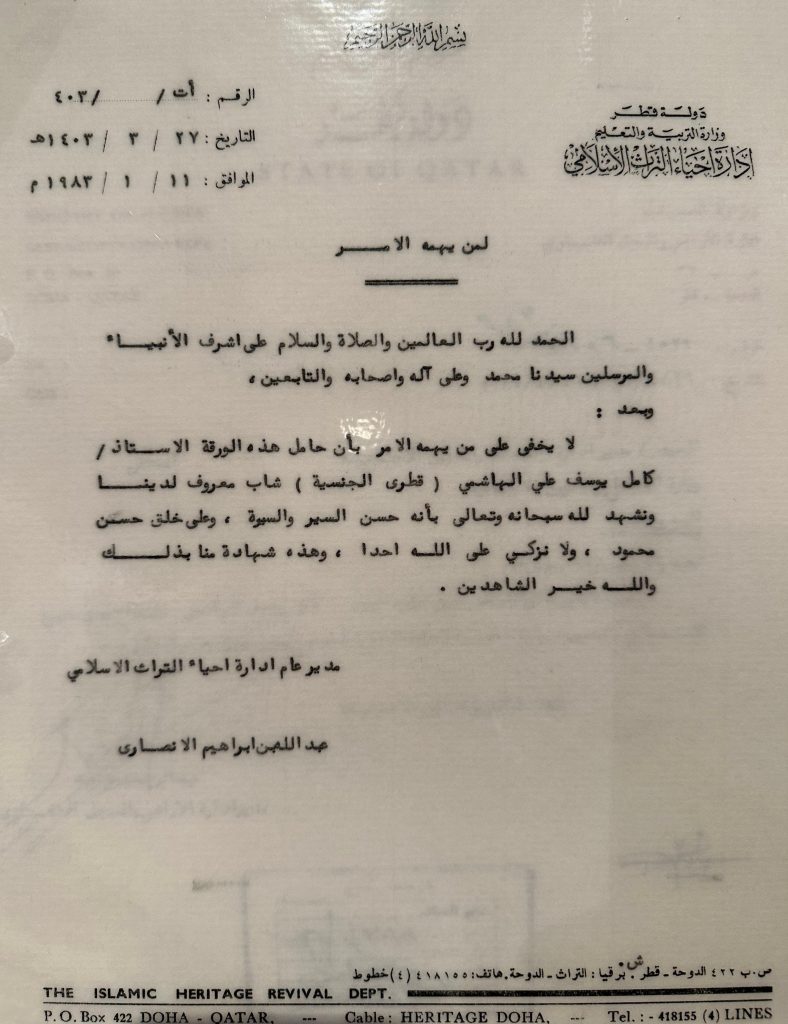
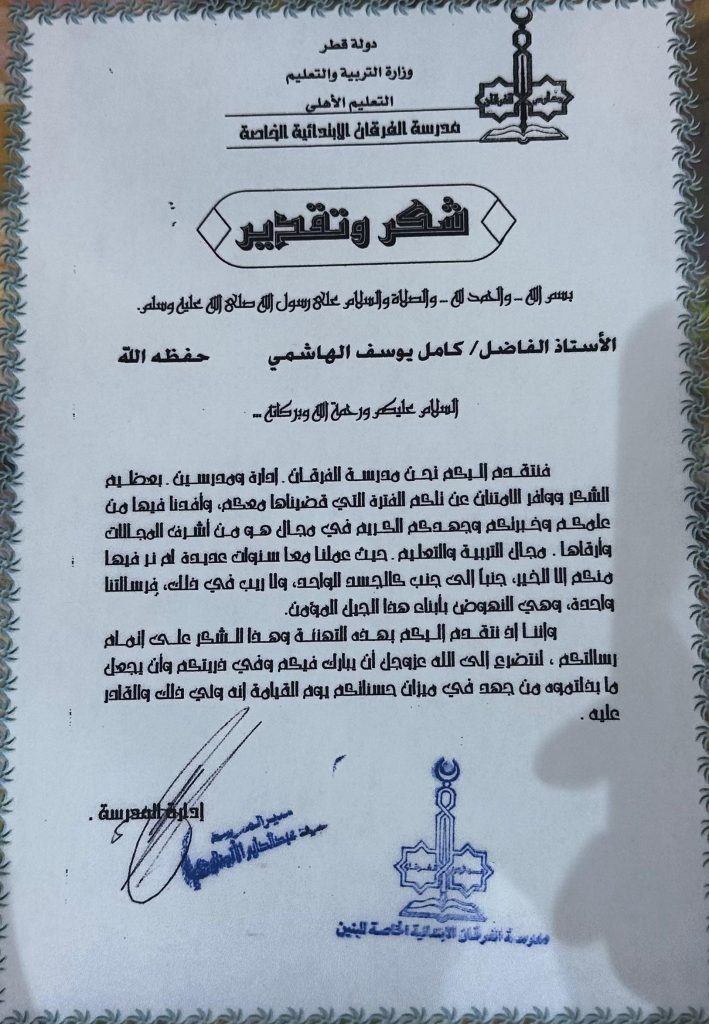
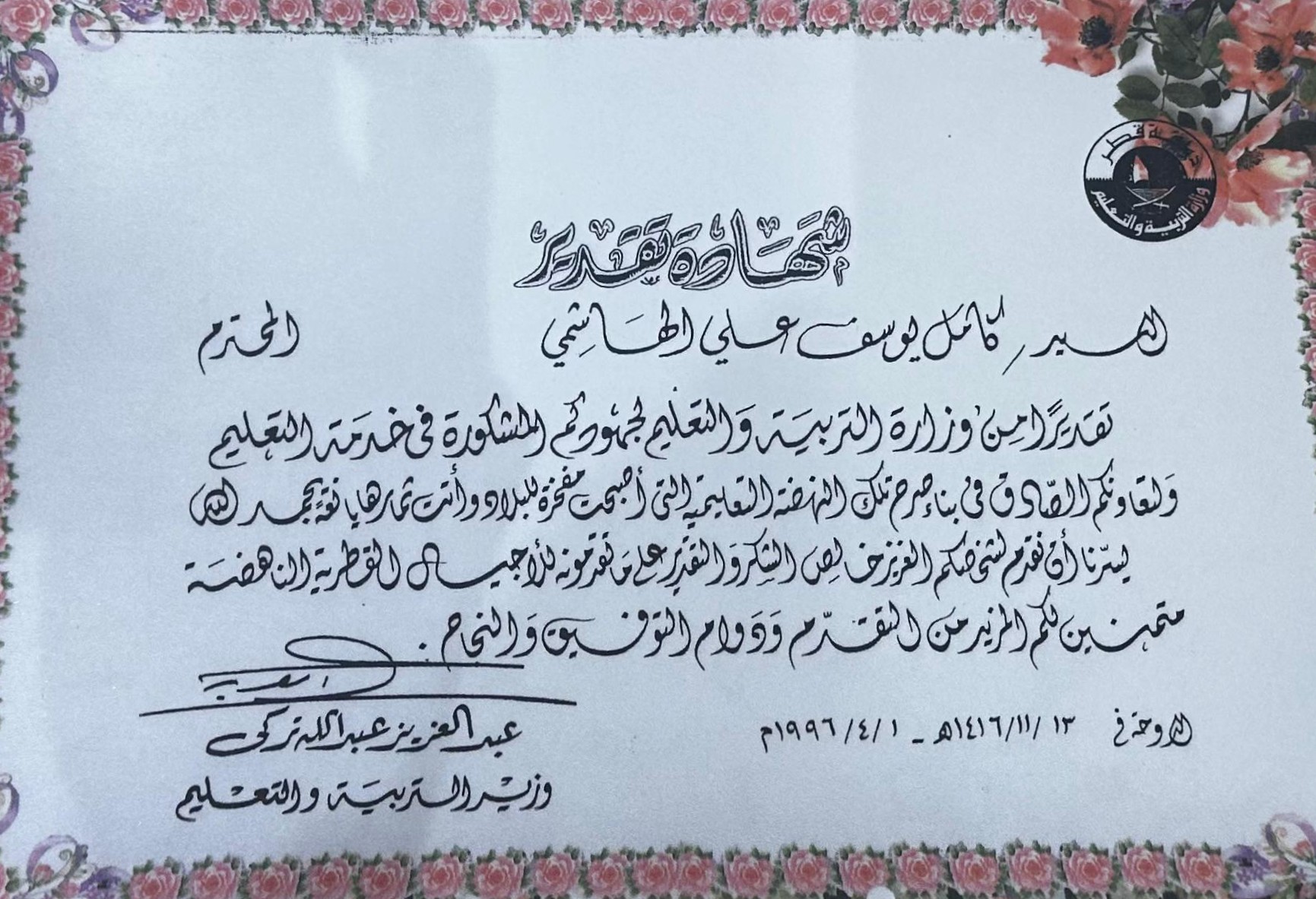
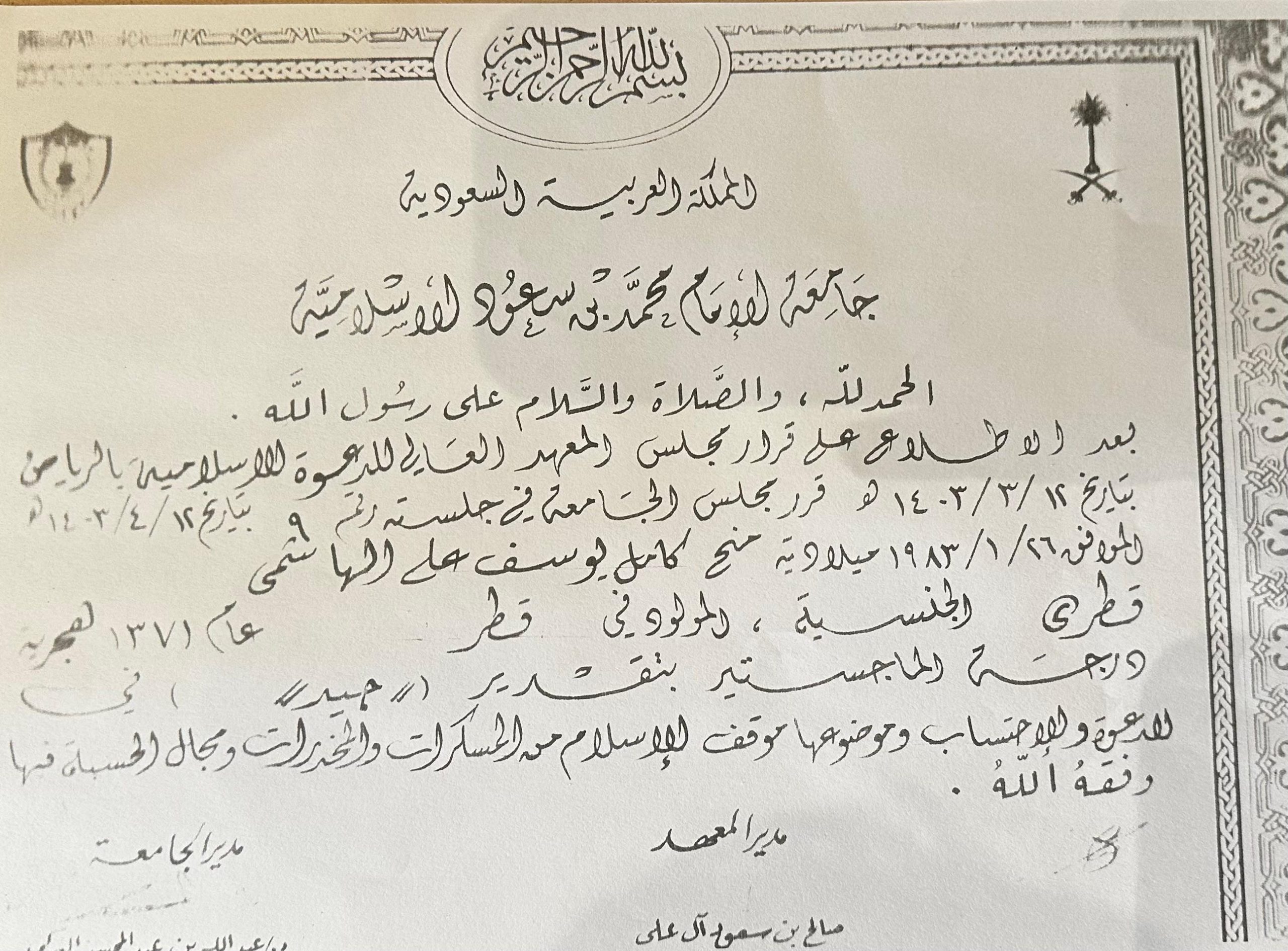
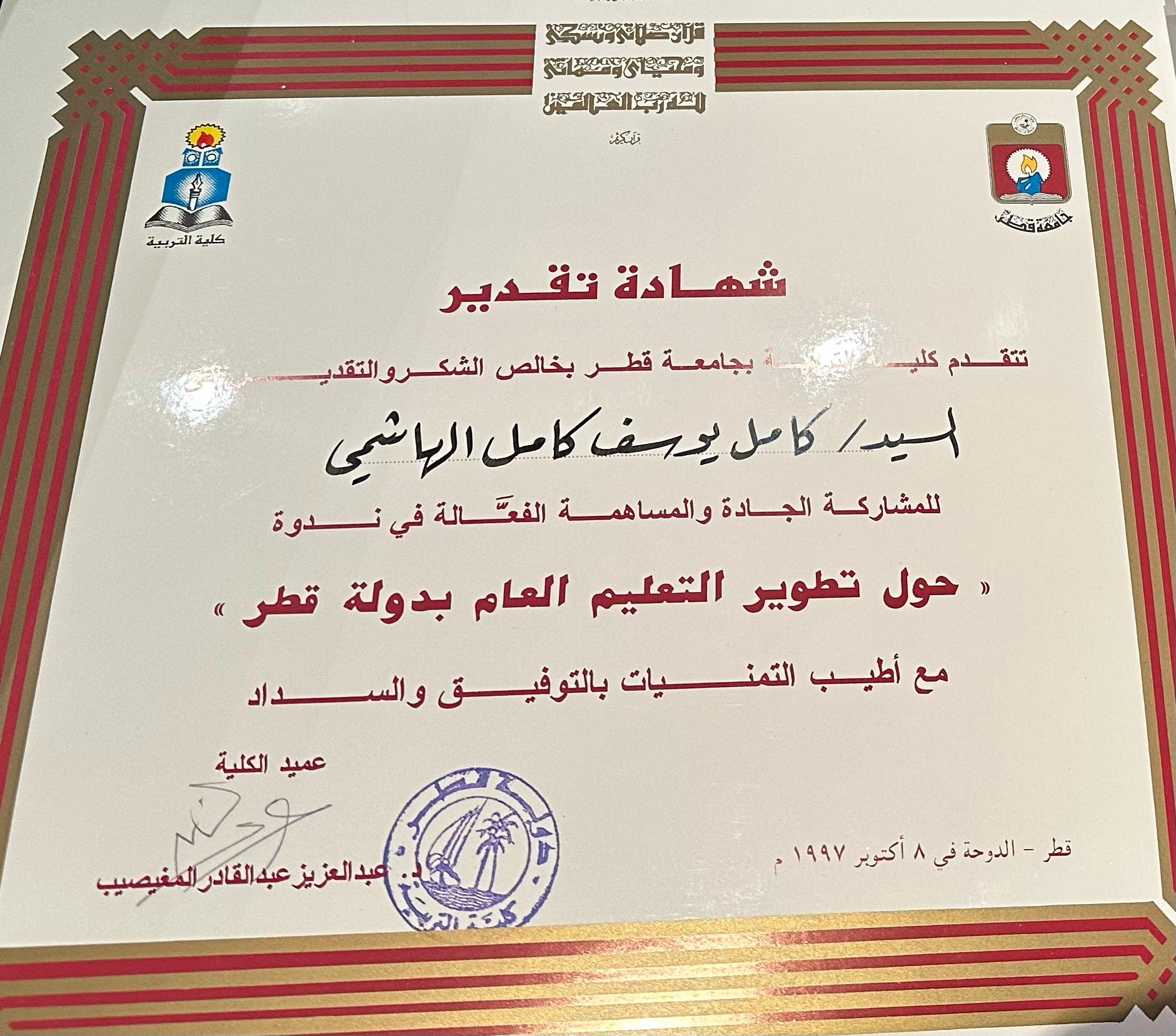
Certificate of Appreciation from the Shari’a Court of the State of Qatar (1971).
Recognition from the Islamic University of Medina as an Outstanding Student (1972).
Honor from Sheikh Khalifa bin Hamad Al Thani (1976).
Certificate of Appreciation from the Organizing Committee of the Third World Conference on Seerah and Sunnah (1978)
Certificate of Appreciation from the Department of Revival of Islamic Heritage (1983)
Several Certificates of Appreciation from the Ministry of Education and prominent individuals during his professional career (1987–2005).
